Mercedes EQE SUV vs smart #1 – Which car suits you better?
Everyday use, family trips or long-distance drives – here’s where the differences show.
Discover whether Mercedes EQE SUV or smart #1 fits your lifestyle better.
Costs and Efficiency:
Price and efficiency are key factors when choosing a car – and this is often where the real differences emerge.
smart #1 has a decisively advantage in terms of price – it starts at 31700 £, while the Mercedes EQE SUV costs 71600 £. That’s a price difference of around 39848 £.
In terms of energy consumption, the advantage goes to the smart #1: with 16.80 kWh per 100 km, it’s hardly perceptible more efficient than the Mercedes EQE SUV with 18.30 kWh. That’s a difference of about 1.50 kWh.
As for range, the Mercedes EQE SUV performs distinct better – achieving up to 611 km, about 171 km more than the smart #1.
Engine and Performance:
Power, torque and acceleration are the classic benchmarks for car enthusiasts – and here, some clear differences start to show.
When it comes to engine power, the Mercedes EQE SUV has a clearly perceptible edge – offering 625 HP compared to 428 HP. That’s roughly 197 HP more horsepower.
In acceleration from 0 to 100 km/h, the Mercedes EQE SUV is slight quicker – completing the sprint in 3.70 s, while the smart #1 takes 3.90 s. That’s about 0.20 s faster.
In terms of top speed, the Mercedes EQE SUV performs noticeable better – reaching 240 km/h, while the smart #1 tops out at 180 km/h. The difference is around 60 km/h.
There’s also a difference in torque: Mercedes EQE SUV pulls clearly perceptible stronger with 950 Nm compared to 584 Nm. That’s about 366 Nm difference.
Space and Everyday Use:
Beyond pure performance, interior space and usability matter most in daily life. This is where you see which car is more practical and versatile.
Both vehicles offer seating for 5 people.
In curb weight, smart #1 is distinct lighter – 1780 kg compared to 2440 kg. The difference is around 660 kg.
In terms of boot space, the Mercedes EQE SUV offers distinct more room – 520 L compared to 323 L. That’s a difference of about 197 L.
In maximum load capacity, the Mercedes EQE SUV performs clearly better – up to 1675 L, which is about 689 L more than the smart #1.
When it comes to payload, Mercedes EQE SUV to a small extent takes the win – 580 kg compared to 470 kg. That’s a difference of about 110 kg.
Who wins the race?
The Mercedes EQE SUV proves to be leaves the rival little chance and therefore becomes our DriveDuel Champion!
Mercedes EQE SUV is the better all-rounder in this comparison.
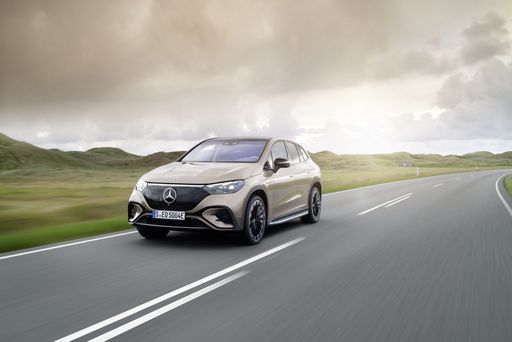
Mercedes EQE SUV
Mercedes EQE SUV
The Mercedes-Benz EQE SUV represents a fusion of advanced electric mobility and luxurious design, offering a refined driving experience that aligns with the brand's renowned legacy. Inside, the cabin is adorned with high-quality materials and state-of-the-art technology, providing both comfort and functionality for modern drivers. Its dynamic exterior is crafted to enhance aerodynamics while maintaining a distinctive and elegant presence on the road.
details @ group-media.mercedes-benz.com
@ group-media.mercedes-benz.com
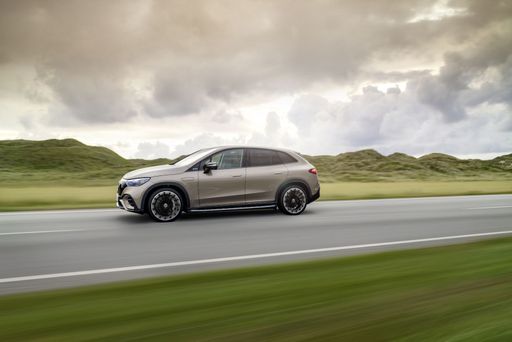 @ group-media.mercedes-benz.com
@ group-media.mercedes-benz.com
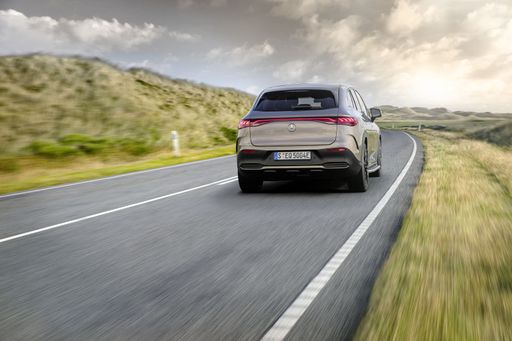 @ group-media.mercedes-benz.com
@ group-media.mercedes-benz.com
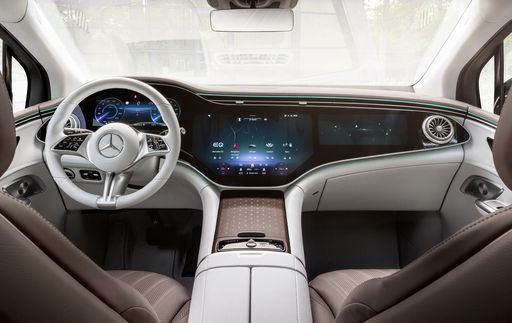 @ group-media.mercedes-benz.com
@ group-media.mercedes-benz.com
smart #1
The smart #1 marks a significant evolution in design philosophy, merging urban practicality with modern aesthetics. Its compact size belies a spacious interior, crafted to offer a comfortable and connected driving experience. With its focus on eco-friendly motoring, the smart #1 is set to charm city dwellers seeking both efficiency and style.
details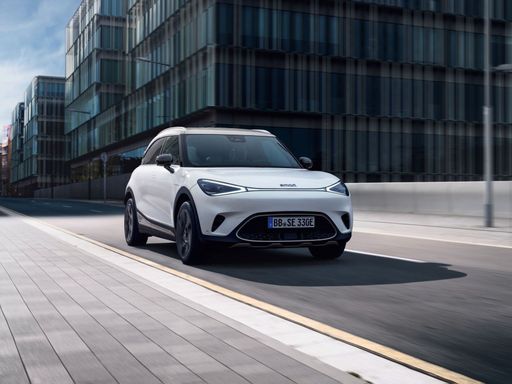 @ Smart Deutschland
@ Smart Deutschland
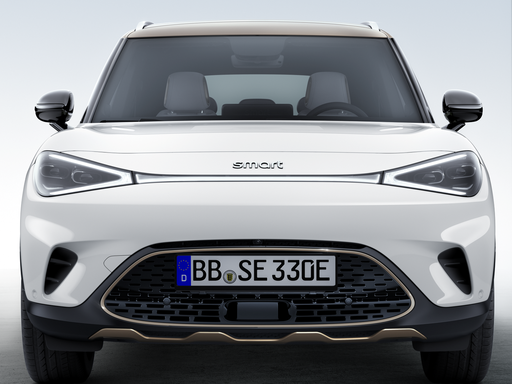 @ Smart Deutschland
@ Smart Deutschland
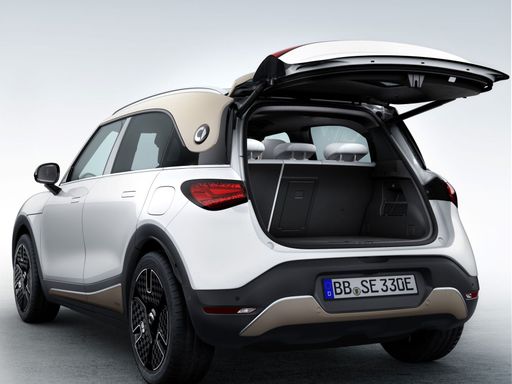 @ Smart Deutschland
@ Smart Deutschland
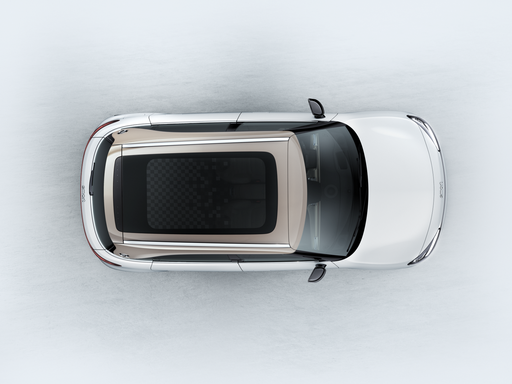 @ Smart Deutschland
@ Smart Deutschland
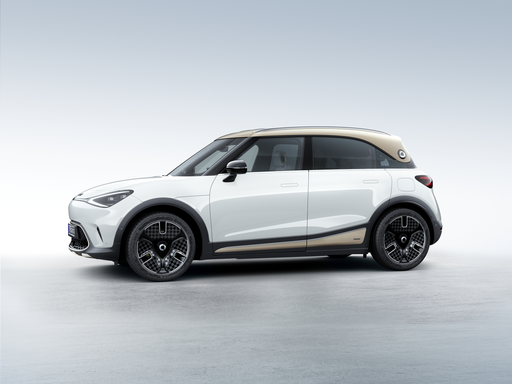 @ Smart Deutschland
@ Smart Deutschland
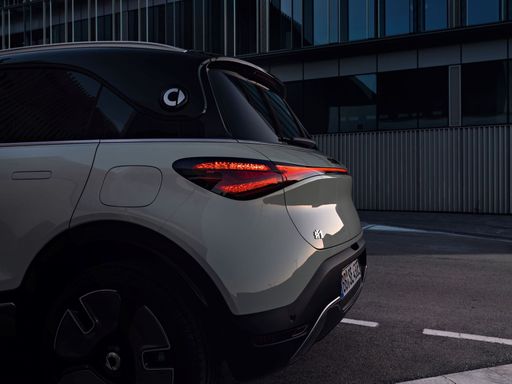 @ Smart Deutschland
@ Smart Deutschland
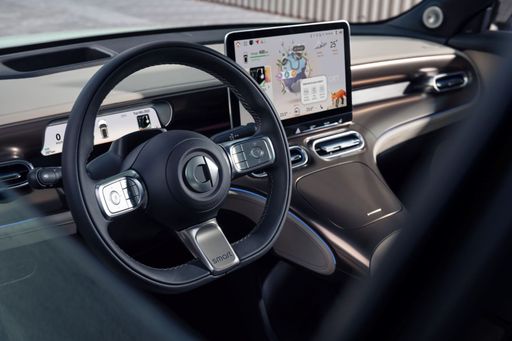 @ Smart Deutschland
@ Smart Deutschland

|

|
|
|
|
Costs and Consumption |
|
|---|---|
|
Price
71600 - 125100 £
|
Price
31700 - 45000 £
|
|
Consumption L/100km
-
|
Consumption L/100km
-
|
|
Consumption kWh/100km
18.3 - 23.1 kWh
|
Consumption kWh/100km
16.8 - 18.2 kWh
|
|
Electric Range
453 - 611 km
|
Electric Range
310 - 440 km
|
|
Battery Capacity
90.5 - 96 kWh
|
Battery Capacity
47 - 62 kWh
|
|
co2
0 g/km
|
co2
0 g/km
|
|
Fuel tank capacity
-
|
Fuel tank capacity
-
|
Dimensions and Body |
|
|---|---|
|
Body Type
SUV
|
Body Type
SUV
|
|
Seats
5
|
Seats
5
|
|
Doors
4
|
Doors
5
|
|
Curb weight
2440 - 2615 kg
|
Curb weight
1780 - 1900 kg
|
|
Trunk capacity
520 L
|
Trunk capacity
313 - 323 L
|
|
Length
4863 - 4879 mm
|
Length
4270 - 4300 mm
|
|
Width
1940 mm
|
Width
1822 mm
|
|
Height
1672 - 1685 mm
|
Height
1636 mm
|
|
Max trunk capacity
1675 L
|
Max trunk capacity
976 - 986 L
|
|
Payload
505 - 580 kg
|
Payload
425 - 470 kg
|
Engine and Performance |
|
|---|---|
|
Engine Type
Electric
|
Engine Type
Electric
|
|
Transmission
Automatic
|
Transmission
Automatic
|
|
Transmission Detail
Reduction Gearbox
|
Transmission Detail
Reduction Gearbox
|
|
Drive Type
All-Wheel Drive, Rear-Wheel Drive
|
Drive Type
Rear-Wheel Drive, All-Wheel Drive
|
|
Power HP
265 - 625 HP
|
Power HP
272 - 428 HP
|
|
Acceleration 0-100km/h
3.7 - 7.1 s
|
Acceleration 0-100km/h
3.9 - 6.7 s
|
|
Max Speed
210 - 240 km/h
|
Max Speed
180 km/h
|
|
Torque
550 - 950 Nm
|
Torque
343 - 584 Nm
|
|
Number of Cylinders
-
|
Number of Cylinders
-
|
|
Power kW
195 - 460 kW
|
Power kW
200 - 315 kW
|
|
Engine capacity
-
|
Engine capacity
-
|
General |
|
|---|---|
|
Model Year
2023 - 2025
|
Model Year
2023 - 2024
|
|
CO2 Efficiency Class
A
|
CO2 Efficiency Class
A
|
|
Brand
Mercedes-Benz
|
Brand
smart
|
What drive types are available for the Mercedes EQE SUV?
Available configurations include All-Wheel Drive or Rear-Wheel Drive.
The prices and data displayed are estimates based on German list prices and may vary by country. This information is not legally binding.
